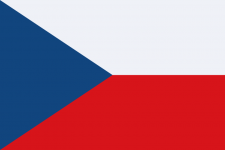
As of 22 June - according to the Ministry of the Interior of the Czech Republic - there are 380 212 Ukrainian citizens in the Czech Republic who fled the invasion of Ukraine by Russia. Over 160 000 of these are adult women, and another 130 000 are children and teenagers. As of the end of May the Czech state, municipalities and regions have spent CZK 7.2 billion (approximately EUR 291.5 million) on assistance to refugees from Ukraine. The largest cost was social support, for which the state paid out four billion crowns (as reported by the Ministry of Finance).
According to data from early June, approximately 70 000 refugees from Ukraine are employed in the Czech Republic and therefore pay income taxes and social and health insurance.
Risks associated with employment
Temporary protection holders have access to public health insurance, education and the labour market, but in the Czech Republic many refugees face difficulties in actually accessing the labour market. Organisations are working to highlight this with the Ombudsman's Office also stating that they are at risk of exploitation, especially sexual or labour exploitation. The Ombudsman warned that Ukrainian refugees should trust only official information and avoid labour brokers.
A recent investigative analysis published on independent media outlet Woxpot highlights the widespread unfairness of employment agencies. The analysis finds that in most cases, social media intermediaries offer unskilled, often hard physical work in warehouses, factories or agriculture. The ads are often discriminatory: they are specifically interested in childless women under a certain age, usually between 45 and 55. The number of working hours in the positions offered is usually very high at around 10-12 hours a day, six days a week, or 60-72 hours a week, with only one day off. According to the Employment Act employees must work an average of 40 hours per week, and if they work more must be compensated during a different week. Wages for jobs range from 100 to 130 crowns per hour (EUR 4.0-5.3), and overtime is often not counted. The current Czech minimum wage is 96 CZK per hour (EUR 3.9) per hour. Intermediaries charge high fees for their services: typically 100-200 EUR.
A difficult solution
The unfair behaviour of employment agencies in the Czech Republic is a long-standing problem that has only increased in proportion with the arrival of large numbers of Ukrainian refugees. At the core of the problem lies a long-standing contradiction in Czech migration policy: although the country declaratively favours highly skilled migrants in its strategic documents, its export-oriented economy is characterised by high demand for cheap and flexible (unskilled) labour. It is precisely this demand that the employment agencies work to meet. In such a climate, agencies are often the only actor to which companies and authorities delegate all recruitment work with foreigners, and they have therefore managed to establish a monopoly on information and coordination.
This problem has long been highlighted by NGOs, and has recently come to the attention of trade unions. Trade unionists from the Czech-Moravian Confederation of Trade Unions (ČMKOS) have recently made a request to the Ministry of Interior and the National Centre for Combating Organised Crime (NCOZ) to investigate the activities of employment agencies, while also requesting that the government temporarily suspend the right of employment agencies to mediate employment.
The government recently declared that it would address the situation by strengthening the capacity and capabilities of the State Labour Inspection Office (SUIP) and the Police of the Czech Republic. A job marketplace for Ukrainian employees should also be established, listing offers from state-vetted employers from across the Czech Republic.
Some experts point out that instead of trying to get Ukrainian refugees into the labour market as quickly as possible, the state should try to make the most of their qualifications and skills and avoid pushing them into low-skilled positions and precarious forms of work (such as agency employment).
Details
- Publication dates
- Location
- Country-wide
- Geographic area
- Czech Republic
- Source
- Posted by
